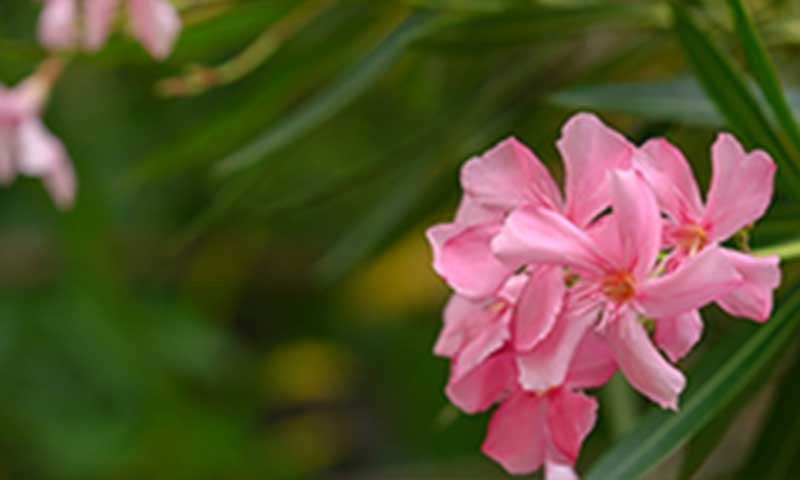Abu Dhabi bans poisonous oleander plants to shield people’s health

Abu Dhabi: The Abu Dhabi Agriculture and Food Safety Authority (ADAFSA) has decided to ban on the cultivation and spreading of the poisonous oleander plant in Abu Dhabi. This decision was taken following the law passed by the government to shield people’s health, especially children and pets, because this plant is considered toxic.
Oleander is generally found in rocky regions and roadsides, and it is a wild shrub. It entices the attention of people because of its attractive look, dark green leaves, and colorful flowers. However, all parts of the plant—leaves, stems, flowers, and seeds—are poisonous.
Also Read: India’s flower production grows; NHB pushes for nursery standards
These toxins are harmful for the heart, and consuming even a small amount can become very serious, and symptoms like nausea, vomiting, diarrhea, and an irregular heartbeat start taking place, and in extreme cases, death is also possible.
Mouza Suhail Al Muhairi, Deputy Director-General for Regulatory and Administrative Affairs at ADAFSA, said, “Banning oleander is a precautionary step to protect our community’s health. At ADAFSA, we are dedicated to ensuring the safety of the public, especially children and pets.”
The decision also aligns with the ‘One Health’ approach, which recognizes the interconnectedness of human, animal, and environmental health. Al Muhairi noted that ADAFSA’s success in implementing this initiative depends heavily on community awareness and cooperation.


